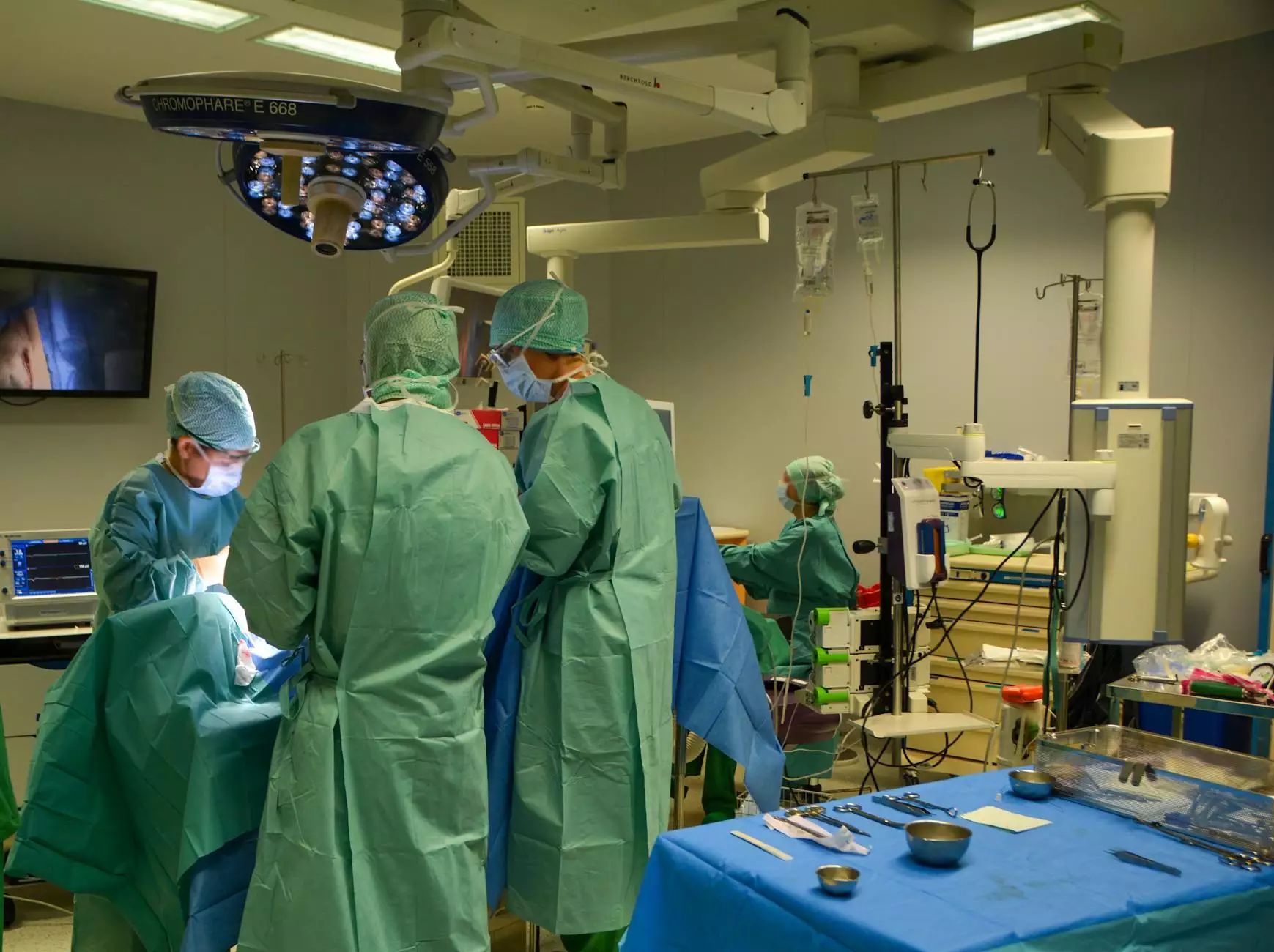Understanding the Sleeve Gastrectomy Procedure: A Comprehensive Guide

The sleeve gastrectomy procedure is becoming increasingly popular as a surgical solution for severe obesity. This innovative procedure not only aids in significant weight loss but also contributes to improving overall health by reducing obesity-related conditions.
What is Sleeve Gastrectomy?
The sleeve gastrectomy procedure is a type of bariatric surgery that involves the removal of a large portion of the stomach, leaving a banana-shaped "sleeve." This smaller stomach size limits food intake and significantly alters the way your body processes food, leading to weight loss.
How Does Sleeve Gastrectomy Work?
During the sleeve gastrectomy procedure, approximately 75-80% of the stomach is surgically removed. This results in:
- A smaller stomach that holds less food, leading to decreased hunger and calorie intake.
- Changes in gut hormones that regulate appetite and blood sugar metabolism.
- A significant reduction in ghrelin, the hormone responsible for hunger, which helps to reduce cravings.
Benefits of Sleeve Gastrectomy
The advantages of undergoing the sleeve gastrectomy procedure are substantial and can lead to a transformative impact on one’s life. Some of the key benefits include:
- Significant Weight Loss: Many patients lose 50-70% of their excess weight within two years post-surgery.
- Improved Health Conditions: Conditions such as type 2 diabetes, hypertension, and sleep apnea can significantly improve after surgery.
- Enhanced Quality of Life: Patients often experience a newfound energy and increased ability to engage in physical activities.
- Minimal Hospital Stay: The procedure is typically performed laparoscopically, allowing for shorter recovery times.
Who is a Candidate for Sleeve Gastrectomy?
Not everyone is eligible for the sleeve gastrectomy procedure. Ideal candidates usually include individuals who:
- Have a Body Mass Index (BMI) of 40 or higher.
- Have a BMI of 35 or higher with obesity-related health conditions.
- Have not had success with traditional weight loss methods.
- Are committed to making lifestyle changes post-surgery.
Risks and Considerations
Like any surgical procedure, the sleeve gastrectomy procedure comes with its own set of risks. It is imperative for potential candidates to discuss these thoroughly with their healthcare provider. Possible risks include:
- Post-operative Complications: These can include infection, bleeding, or leaks from the sleeve.
- Nutritional Deficiencies: Post-surgery patients must adhere to a strict diet and supplementation to avoid deficiencies.
- Weight Regain: Although rare, some individuals may regain weight if they do not follow recommended post-operative guidelines.
Preparation for the Procedure
Preparation is key when it comes to the sleeve gastrectomy procedure. Prospective patients should:
- Attend all pre-operative appointments.
- Follow a prescribed diet leading up to surgery, often referred to as a pre-operative diet.
- Understand the significance of post-operative lifestyle changes, including dietary adjustments and exercise.
What to Expect During the Surgery
The surgical process for the sleeve gastrectomy procedure typically lasts between 1 to 2 hours. It is performed under general anesthesia and involves the following steps:
- The surgeon makes several small incisions in the abdomen.
- A laparoscope (a small camera) and surgical instruments are inserted.
- The majority of the stomach is removed, and the remaining sleeve-shaped stomach is created.
- The incisions are closed using stitches or surgical staples.
Recovery Process After Sleeve Gastrectomy
Post-operative recovery from the sleeve gastrectomy procedure is crucial for success. Patients can expect:
- Initial Recovery: Most patients stay in the hospital for 1 to 2 days before being discharged.
- Dietary Changes: Recovery includes transitioning from liquids to pureed foods and eventually to solid foods over time.
- Regular Follow-ups: Patients will need to attend follow-up appointments to monitor their progress and adapt their dietary plans as necessary.
Long-Term Lifestyle Changes
Success after the sleeve gastrectomy procedure relies heavily on adherence to long-term lifestyle changes. This includes:
- Maintaining a Healthy Diet: Patients must focus on a nutrient-dense diet, avoiding high-calorie and sugary foods.
- Regular Exercise: Incorporating physical activity into daily routines is essential for sustained weight loss.
- Support and Counseling: Joining support groups or therapy can help address emotional eating and maintain motivation.
Success Stories and Testimonials
There are countless success stories from individuals who have undergone the sleeve gastrectomy procedure. Many report a dramatic turning point in their health and lifestyle. Here are a few key testimonials:
"After years of struggling with my weight, the sleeve gastrectomy was my turning point. I've lost over 100 pounds and feel more energetic than ever!" – Sarah M.
"This procedure didn’t just change my body; it changed my life. I can now participate in activities with my kids that I never thought possible." – John D.
Conclusion
The sleeve gastrectomy procedure represents a powerful option for those battling obesity and related health issues. With the right preparation, support, and commitment to lifestyle changes, this surgery can pave the way for improved health and quality of life. It is essential to consult with qualified professionals to discuss all potential benefits and risks comprehensively.
For More Information
For more resources on the sleeve gastrectomy procedure and to connect with healthcare professionals specializing in weight loss surgery, visit thewellcome.com. Your journey to a healthier lifestyle begins with informed decisions and support.









